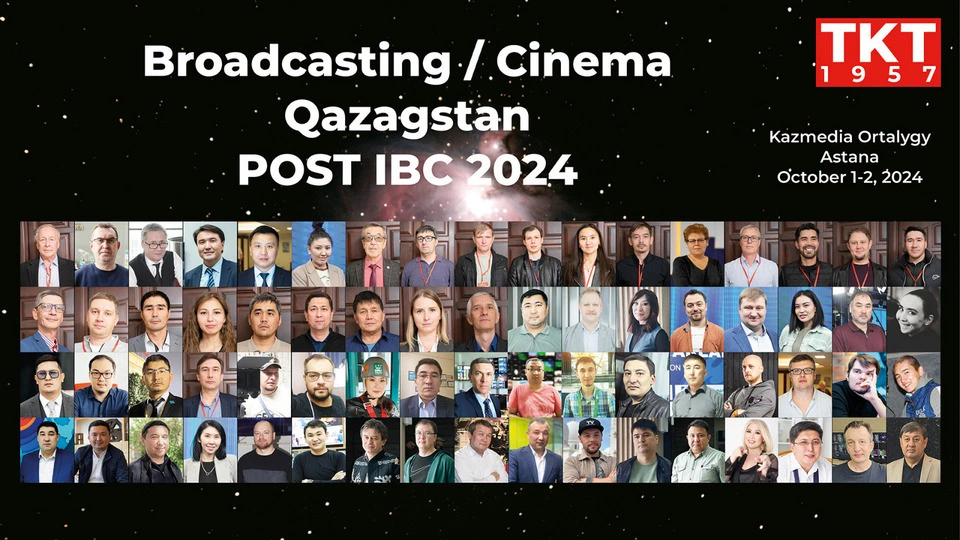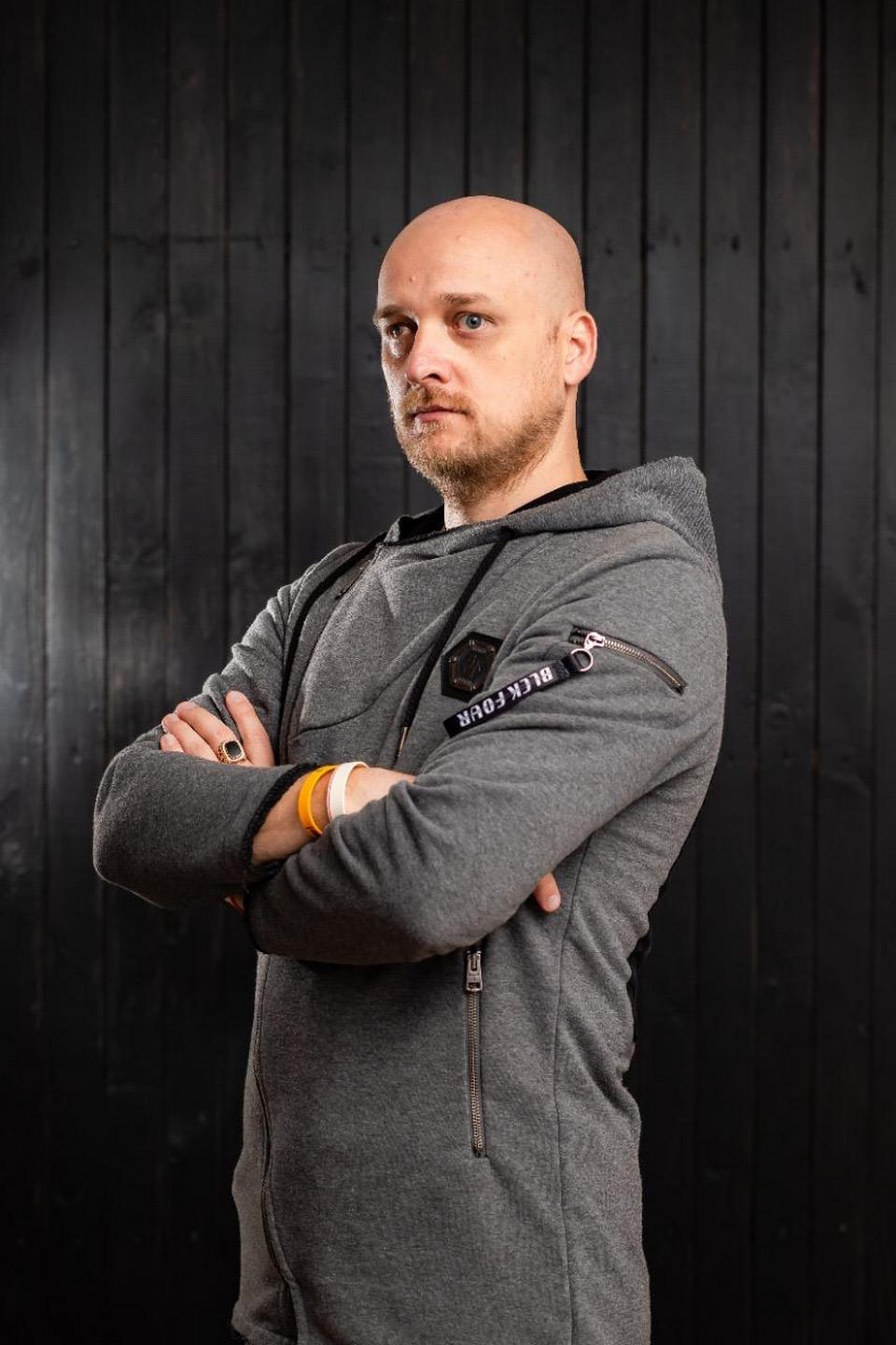Interview with Vadim Beloshenko, Engineer at the PTS “Khabar” in Pavlodar, Kazakhstan.
From Soviet Construction to Survival: A Personal Journey of Resilience in Kazakhstan
— When and where were you born? How did your ancestors come to Kazakhstan?
I was born on May 23, 1982, in the village of Kalkaman, in a working-class family. My parents came to Kazakhstan during the Soviet construction era. My father worked for a construction company that built major projects in Kazakhstan: GRES-1 and GRES-2 in the city of Ekibastuz.
Before that, they lived in the Novosibirsk region. My older brother was born there, and I was born in Kazakhstan.
My mother worked in a library at a factory. The region has a famous tractor plant that produces the “Kazakhstanets” tractor, and in Kalkaman, they manufactured hydraulic suspension parts. I spent more time with my mother because my father worked on a rotational basis. Initially, his schedule was one month on, one month off, and later, it changed to 15 days.
My father came home on weekends, handled tasks, so we saw each other rarely. My childhood was like this: my mother would go to work, I would leave home with her, and spend the entire day playing with my peers. The street was everything, where the first skills of independence were born.
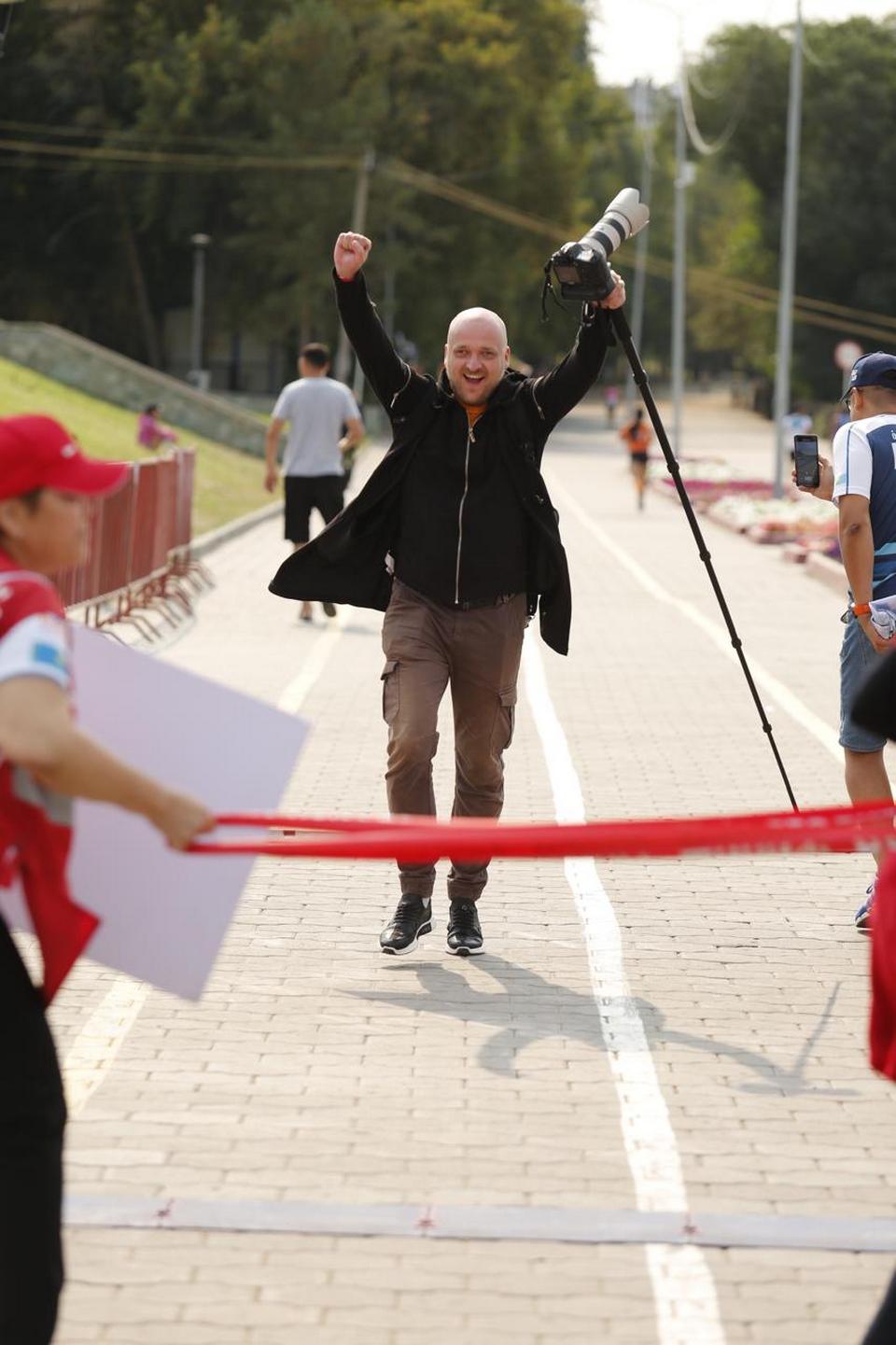
However, during the collapse of the Soviet Union, everything stopped. Enterprises closed, constructions were frozen, salaries were delayed, and there was a shortage of money. My parents tried to feed the family. After a carefree childhood, a tough period began – we had to survive.
In 1991, we moved to the regional center, Pavlodar. My brother and I had a new school, and my parents had new jobs. My father continued working in a construction company on a rotational basis, but it was difficult, and the company went bankrupt. Huge debts, money lost its value. My father’s salary became minimal. Additionally, we moved to a house, and my mother had to manage the household, cooking, and gardening. My father, of course, looked for ways to earn money. My parents tried their hand at trading and other activities, but there was saturation and high competition, and only the strongest survived.
I sold newspapers.
My brother and I would go to the other side of the city to the newspaper office “Zvezda Priirtyshya.” We bought newspapers in batches, and if the batch sold out, we went for more. It was winter, it was cold, and I stood by the stores selling newspapers to people as they left.
My father got a job, and it became easier. But it was still challenging, especially during the cold season when we needed to buy coal and firewood for the winter.
Overcoming Adversity: A Story of Resilience and Adaptation
— Did you start school in the village or in the city?
I started school in the village. I always remember the warm summer, and school felt like a restriction of freedom. Initially, I had no interest in school. Every day, I had to get up, go to classes, and study. Of course, over the years, my attitude changed, even by the second grade, my attitude was different.
I had an interesting teacher from the first to the fourth grade, and my parents made great efforts to ensure I ended up with this teacher. I even started school a year earlier than my classmates to be under this teacher’s guidance.
— At what age did you move and change schools? How old were you?
I was 9 years old. It was 1991, a difficult period. At 9 years old, I had an accident, an unfortunate incident. I lost an eye, losing my sight. It happened while playing, a dart accidentally hit my eye.
This essentially changed my life. At 9, my childhood ended. From what I know from articles and other sources, a child is born to laugh, smile, and be something pure and bright. While they are young, they are not troubled by problems and learn about the world through play. At 9, my childhood ended because I spent a long time in the hospital and became withdrawn, trying to stay away from everyone.
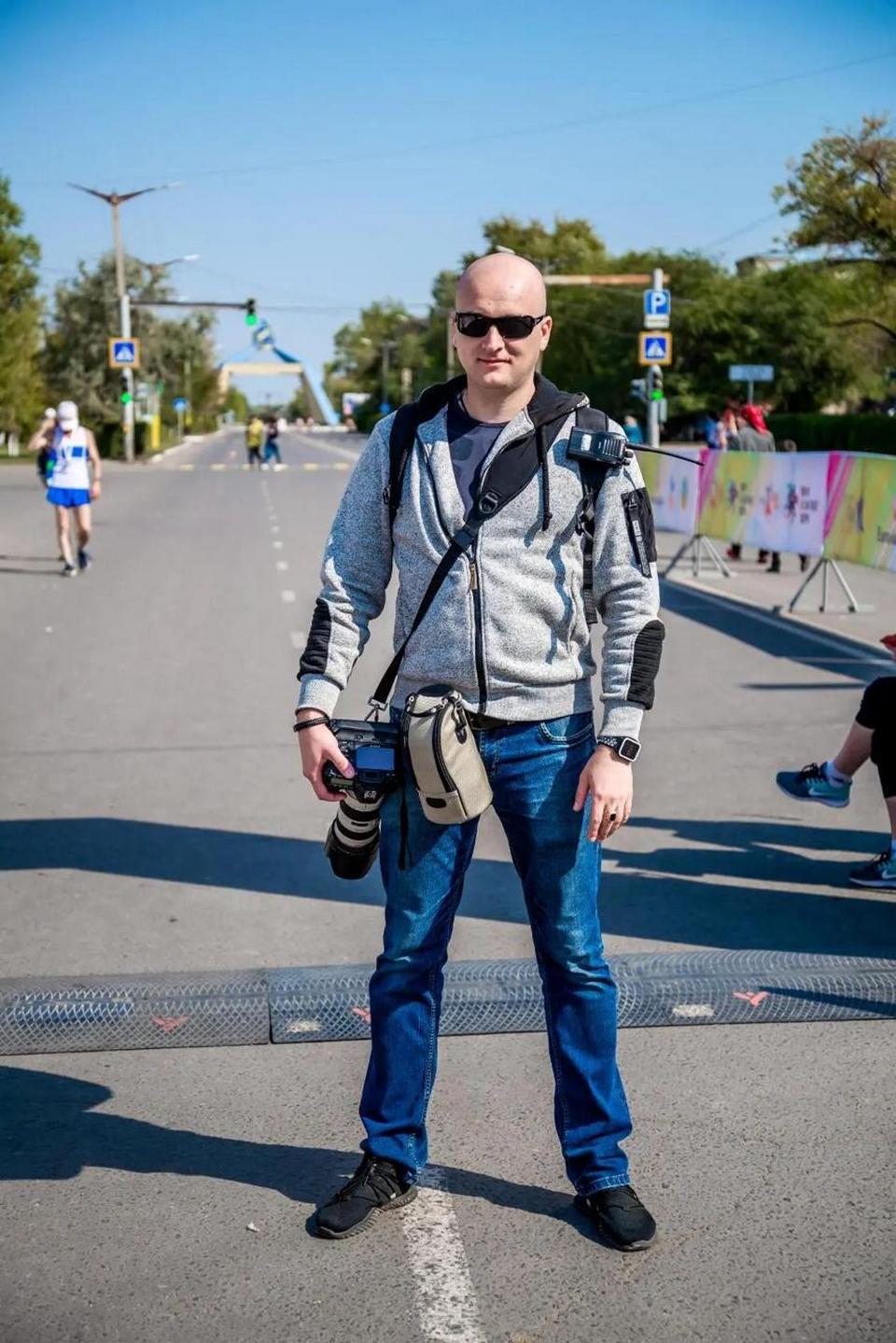
— How did you cope with this period?
It was challenging. I got injured in January, and we moved in August. I spent a long time in the hospital.
Shortly before that, my father was hospitalized for varicose vein surgery due to heavy work. My brother had an appendectomy. Both were operated on in the city of Ermak (now Aksu) because surgeries couldn’t be done in our village.
My mother traveled from Kalkaman to Ermak, which is 50-60 km from our village, to visit my father and brother, and then to Pavlodar, where I was in the children’s ward, which is another 30-35 km, and then back home. She commuted every other day until my father and brother were discharged. And in August, we moved to Pavlodar. At that time, I was in the fourth grade. The education system in the village for primary school was standard, we studied for 4 years.
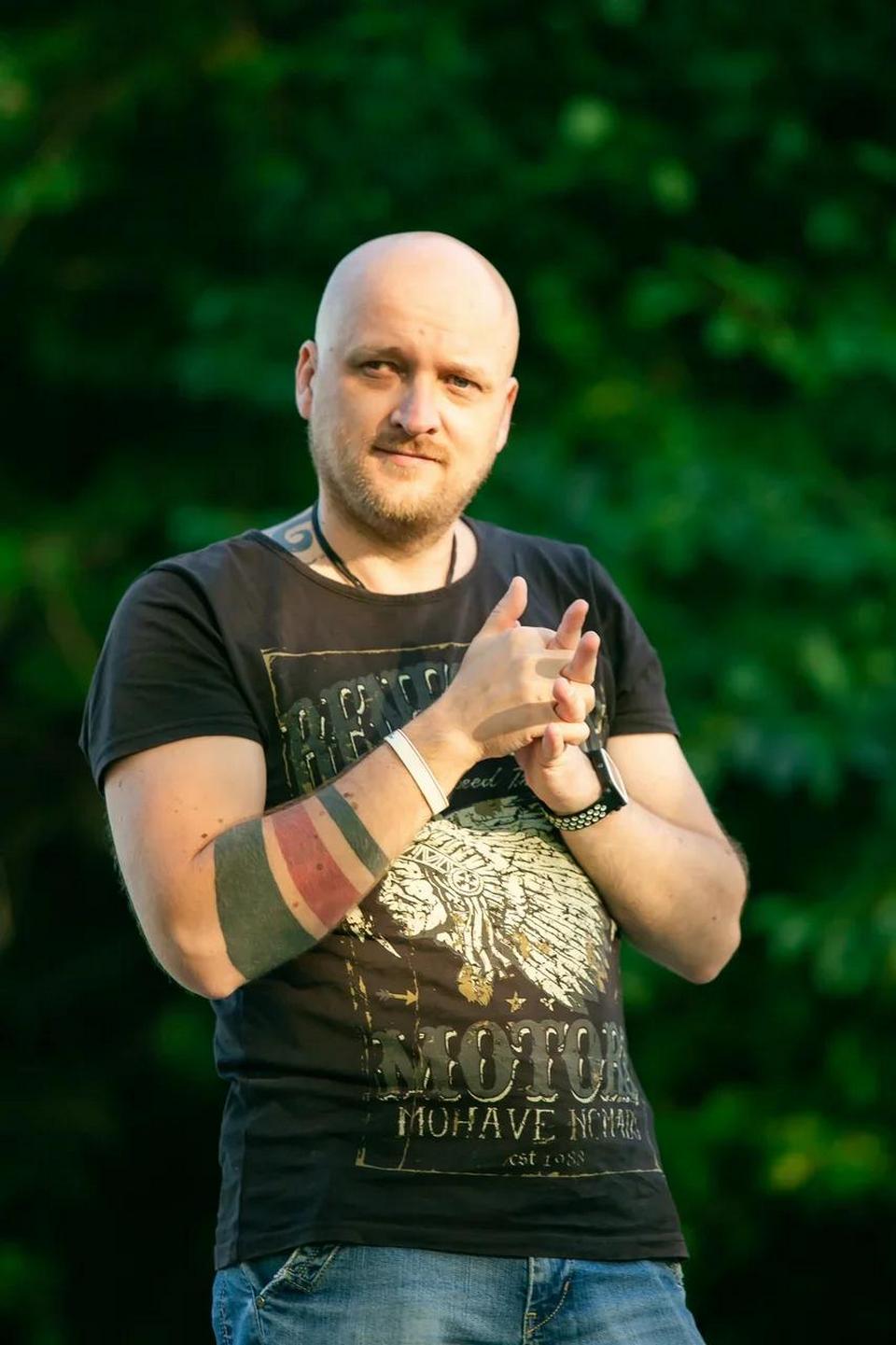
In the city school, it was psychologically tough: a new environment, and I was placed in the third grade. There was no fourth grade, and it went straight to the fifth, so I took a step back in my education. Additionally, all attention was focused on me. I was different, I was afraid even to sneeze because my intracranial pressure would rise, and my body was very weak. I became a loner and found it hard to stand up for myself.
— Did you have friends?
I had friends. Here I developed the ability to find common ground with people, which was very useful in life later on. My communication skills grew; I had to adapt to each person because there was still a need for communication and friends. As I grew older, it was tough because everyone had a partner. My peers married earlier than I did. I married at 27, and until I was 25, I felt unwanted, thinking any girl or woman needed a different type, and I didn’t meet those criteria.
— What did you do during this time besides school? What were your hobbies?
I remember there was a martial arts section in our small village, and I really wanted to join.
After the accident, there was no talk of any activities. It was a period of survival, with my parents looking for ways to support the family.
So, I spent all my time on the streets with friends; we were essentially left to ourselves.
From School Challenges to a Promising Career Path
— After finishing school, where did you decide to go?
Due to my determination, I was invited to work at a scrap metal collection point. It was near my home. I started with small, unattractive tasks for little money. After the trial period, I worked on par with everyone: loading and unloading trucks, carrying very heavy bags, iron pieces, and valves. I often worked until late at night, but even such work didn’t scare me. I earned money and helped my family. By then, I could afford to dress well and make purchases with my own money. This continued from the 9th to the 11th grade.
When I was finishing school, it was decided to continue my education until the 11th grade because the prospects after the 9th grade were not very promising.
There was a railway school near my house, training locomotive drivers and track workers. Every parent probably wants their child to get a promising profession and, in the future, have a good specialty and financial security. So, after the 11th grade, I had more opportunities to enter an institute right away. We considered several options, but in the end, I entered the communication department of a college after the 11th grade.
— Why did you choose this specialty? How were you doing with physics and math in school?
In school, I had no problems with math until letters appeared in the examples: a, b, c, x, y, etc. But when I entered college, everything changed. A new teacher showed me a different way to solve examples. Considering math wasn’t my strong suit in school, in college, I solved examples for 2-3 pages on my own. I started to “devour” math.
I can’t say I became a mathematician. For example, my wife graduated school with a medal. I call her a “number eater”: she loves math and numbers. Even now, she can solve any problem and enjoys it.
I liked my physics teacher and her teaching style. I understood physics, and the subject interested me.
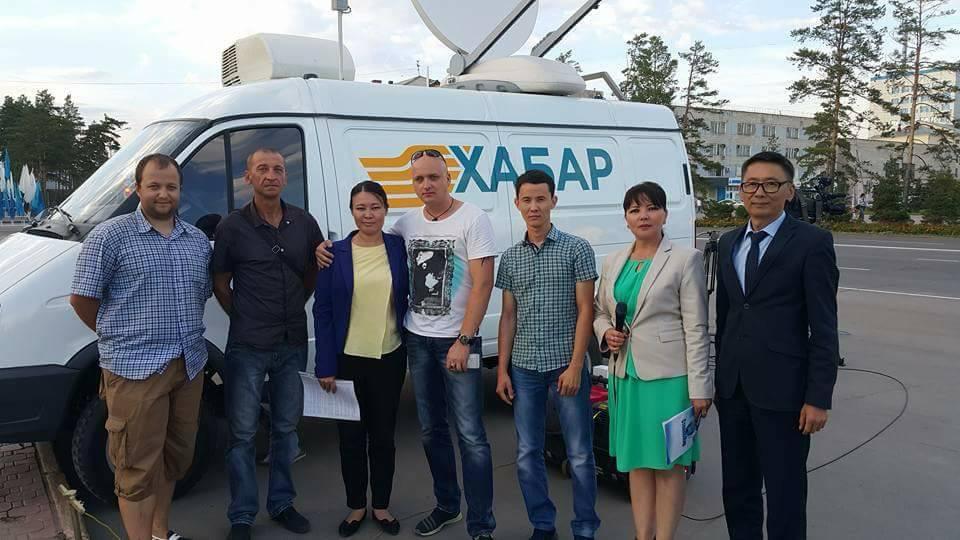
I chose the communication specialty for one reason. My parents and the parents of my friend worked in this field. At that time, you could still get a good job through connections, and a neighbor offered her help. It was a reliable guarantee.
At that time, office professions were popular, and there was a shortage of manual workers. The job market was oversaturated, and to get a job, you had to pay a considerable sum.
The first year in college, I wondered what communication was. This year was a kind of introduction to adulthood, where every lesson and lecture could be the key to a future profession that would accompany me throughout life. I took my studies very seriously, understanding that the knowledge gained would determine my future career.
I took my studies very seriously, understanding that the knowledge gained would determine my future career
By the beginning of the second year, I already had certain skills and experience, allowing me to view my studies from a new perspective. For example, my developed spatial thinking allowed me to easily visualize any object or part in three-dimensional space. This was particularly evident in the subject of drawing, where I could imagine and visualize any element from different angles and facets, significantly easing the completion of tasks and understanding of the material.
My abilities did not go unnoticed, and I even began helping the teacher in drawing classes. I enjoyed sharing my knowledge and helping classmates master complex topics. At the same time, I gained valuable experience and confidence in my abilities. This was a period when I realized that studying was not only interesting but also useful, as every step brought me closer to my dream and future profession.
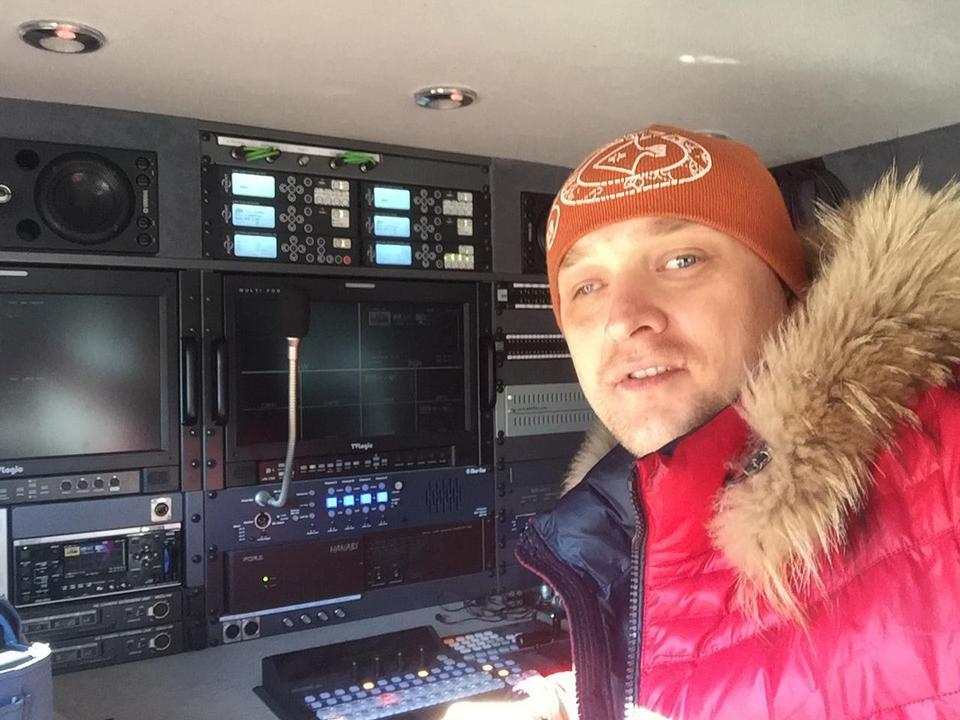
As a result, the first two years in college not only gave me fundamental knowledge and skills but also helped me understand that education was not just about getting a diploma but an opportunity to develop, grow, and become better.
An interesting incident happened at school. The teacher gave an assignment that I easily completed while someone else was still thinking about it. I always managed to complete tasks quickly. In college, during a drawing class, I solved a problem on the topic of “circle in three projections” before the lesson even started. When the teacher asked who drew it on the board, she was surprised to learn it was me. She realized I had good spatial thinking and even asked me to explain topics to my groupmates. My spatial thinking always helped me in such situations.
— So, you could see the parts spatially in the aggregate and apparatus?
I could trace the path in my head. If a part of the PBX was in front of me, I could visually represent how the path went through various relays and how it was laid out. But later, when I worked, I understood the scheme, where the “legs” came from, and where to look.
In the second year, I actively absorbed knowledge like a sponge, and the learning process brought me great pleasure. Every day, I discovered something new and interesting, which only strengthened my motivation to study. By the time I moved to the third year, I already felt that education was not only an obligation but also a source of joy and satisfaction.
In the third year, I simply enjoyed the learning process. I saw my professional skills and understanding of subjects grow in a spiral, making learning an exciting and engaging process.
In the fourth year, the academic year lasted until February, followed by state exams and graduation.
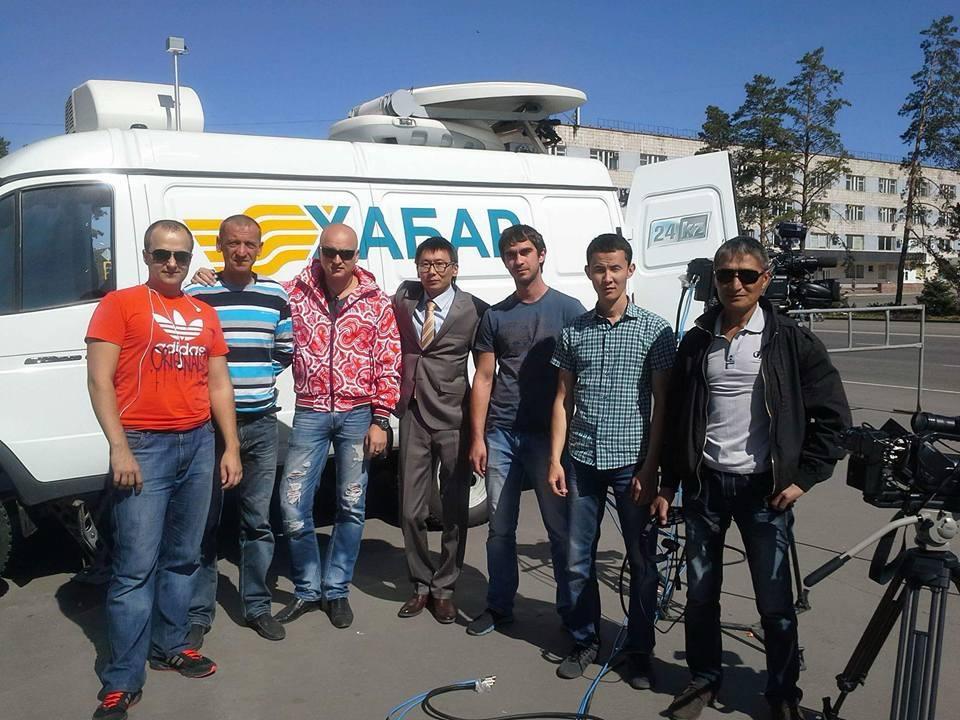
In October, my mother suggested applying to the company where I planned to work after graduation. I sent the application on Thursday, and the next day I received a call informing me I had been accepted for the job. Before starting work, I informed my homeroom teacher that I wouldn’t be able to attend classes. They didn’t mark me as absent, and my grades were always good. The director and my classmates didn’t know about my new job, but the information leaked through parents working in the same organization. I understood that my education cost money, and there was no turning back.
During the state exam, the teacher said there was no point in questioning me because I knew everything
I took it very seriously; if such a stage had come in my life, I needed to move forward and work. Even the college director didn’t know that one student was already working.
In college, I studied well, I didn’t even take notes; I understood what the teachers were talking about. In the third year, we had a new head of the department, and an unpleasant situation occurred. For some reason, they decided I was involved, although I wasn’t. I didn’t betray my friends or let them be blamed. The head of the department decided to intimidate me with additional exam questions. I was even glad, asking why not two questions. My straightforwardness didn’t please her, and in the end, we settled on three additional questions. During the state exam, the teacher said there was no point in questioning me because I knew everything. I was like a fish in water.
From Telecom Technician to Broadcast Engineer
— Which organization did you join, and what was your first position?
I became a technician at “Kazakhtelecom,” the only telecom operator at that time. It involved city networks, PBXs, and GTS. In the third year, I had an internship at a city PBX. I was assigned to a team of technicians. The technicians’ task was to inspect, service communication lines in apartments, and fix line issues, disruptions, and short circuits. I worked with four technicians, and I easily understood what and how to do; there was nothing complicated about it.
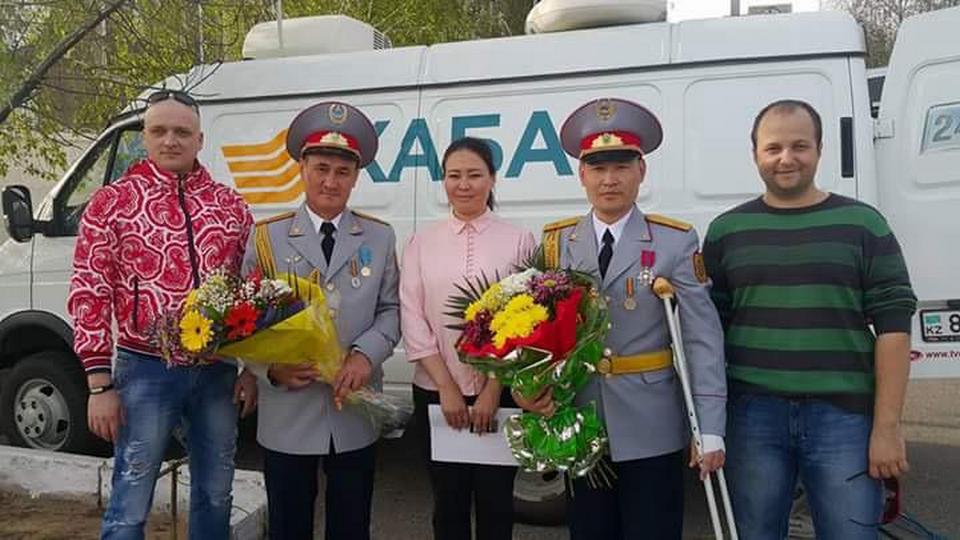
During my production internship in the third year, I already had a full set of tools that a technician used, from a screwdriver to a telephone handset used by line technicians and at distribution cabinets.
While working at “Kazakhtelecom,” I loved interacting with people. I had 10 to 20 requests a day. I would come to a request and not know who would open the door.
My childhood injury played a role here, as well as my ability to find an approach to people. Working as a technician required contacting each person and finding common ground. After completing a request, I wanted to leave with positive emotions.
— How long did you work there?
If I’m not mistaken, I worked there for almost three years. It was difficult to get a job anywhere at that time; job ads always required three years of experience. Despite being young, I was 20 years old, I had a good reputation among the team. When I was leaving “Kazakhtelecom,” I received an offer to move to another position just so I wouldn’t leave the organization. There was a shortage of such specialists who worked directly with their hands because we had to work in both +35 degrees heat and -31 degrees cold.
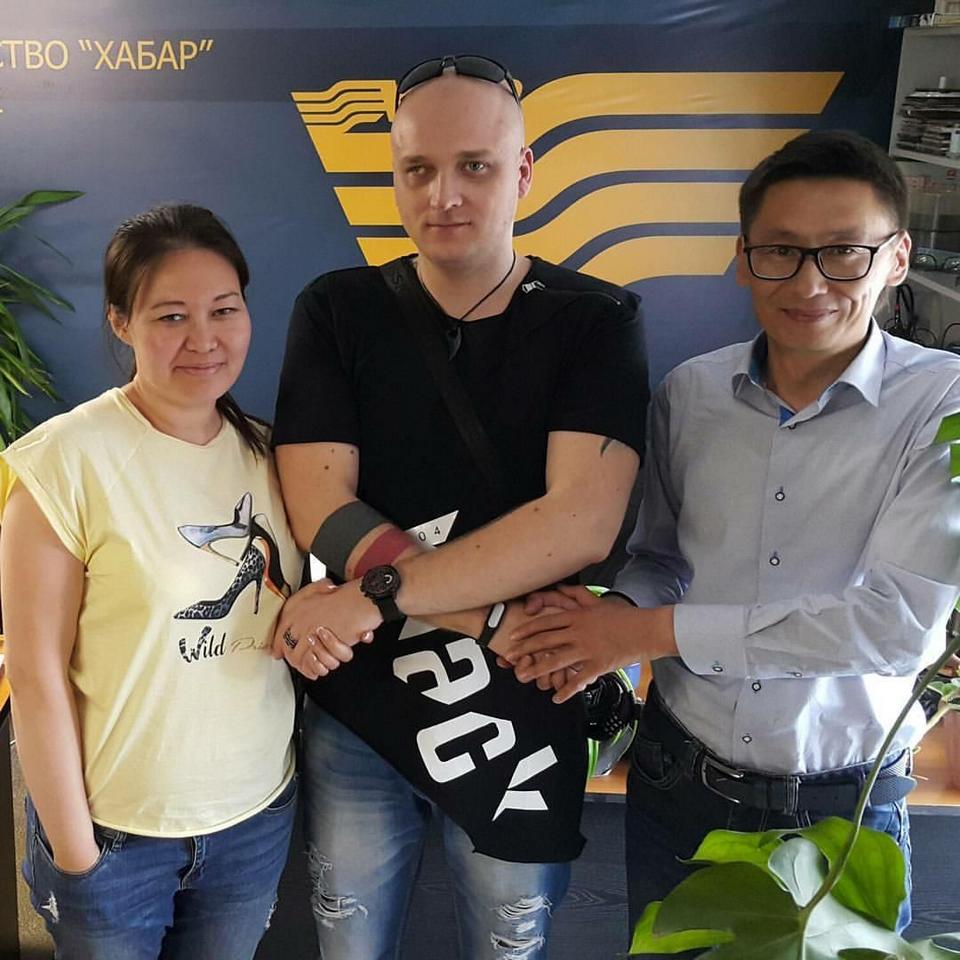
— How did you discover the world of television?
As a child, I loved looking at the sky. I was still young and didn’t understand what the solar system was. But from pictures, I could imagine what the Earth looked like and how satellites flew. I especially liked the night sky and the moon. I would observe it as closely as possible without a telescope or binoculars. The sky always fascinated and interested me.
As I grew up, I learned more about the solar system and Earth’s satellites. Although I still didn’t fully understand what satellites were, the sky continued to interest me.
When I got older, I watched news about rocket launches from Baikonur. One winter evening, at my house, I was going to the bathhouse and saw an unusual flying object in the sky, clearly not a plane. I realized it was a rocket. My interest was both technical and cosmic.
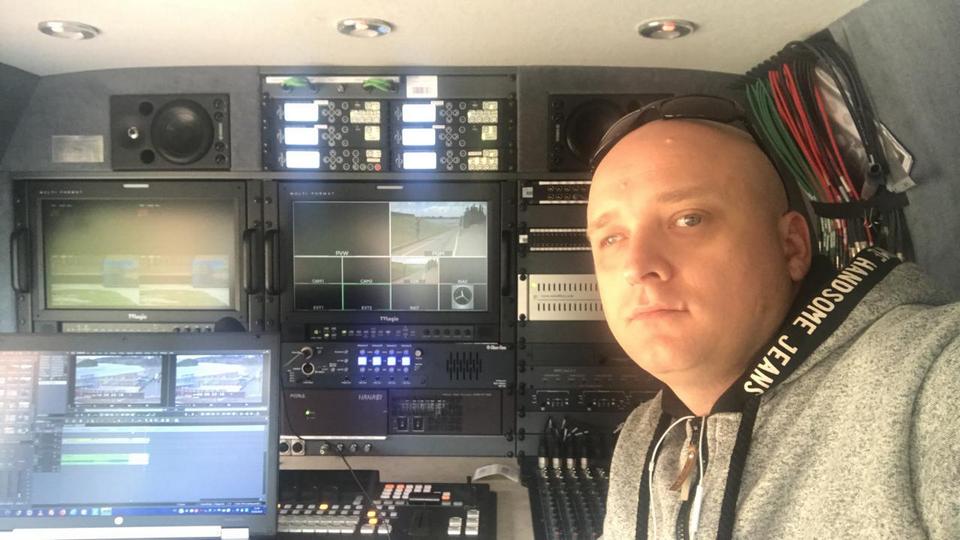
Another moment occurred when I worked at “Kazakhtelecom” on a city PBX located in another part of the city. I traveled to work with a transfer, first by bus to the railway station and then by tram to the PBX. I developed a ritual. When riding the tram, I would sit where I could best see the TV tower and say, “Hello, tower,” and when returning home, I would say, “Goodbye, tower.” It seemed silly.
After finishing school, we parted ways and got jobs, but I often called my friends. We would chat for 10-15 minutes, catching up on each other’s lives. I had a friend who worked at our local radio station. One day, I called to talk to Dima, but they told me he had joined the army for two years.
Two years later, our city had a huge celebration in the central square. Several tens of thousands of people were celebrating, and I found myself there with a classmate and ran into Dima. He gave me his phone number. Our next conversation happened in the summer, and he invited me to work. The staff was expanding, and they were looking for new employees, sometimes pulling in friends. I went to his workplace, a TV center, part of “RTRK Kazakhstan,” and the satellite TV company “KatElco,” which broadcasted TV and radio channels. They told me the working conditions. I compared the salary differences, and in the fall, in October, I submitted my resignation.
I got a new job on television, as an engineer. Initially, broadcasts started at 17:00. An hourly news block was broadcasted for the region, and later, the channel expanded to broadcast radio and TV signals from morning until late evening.
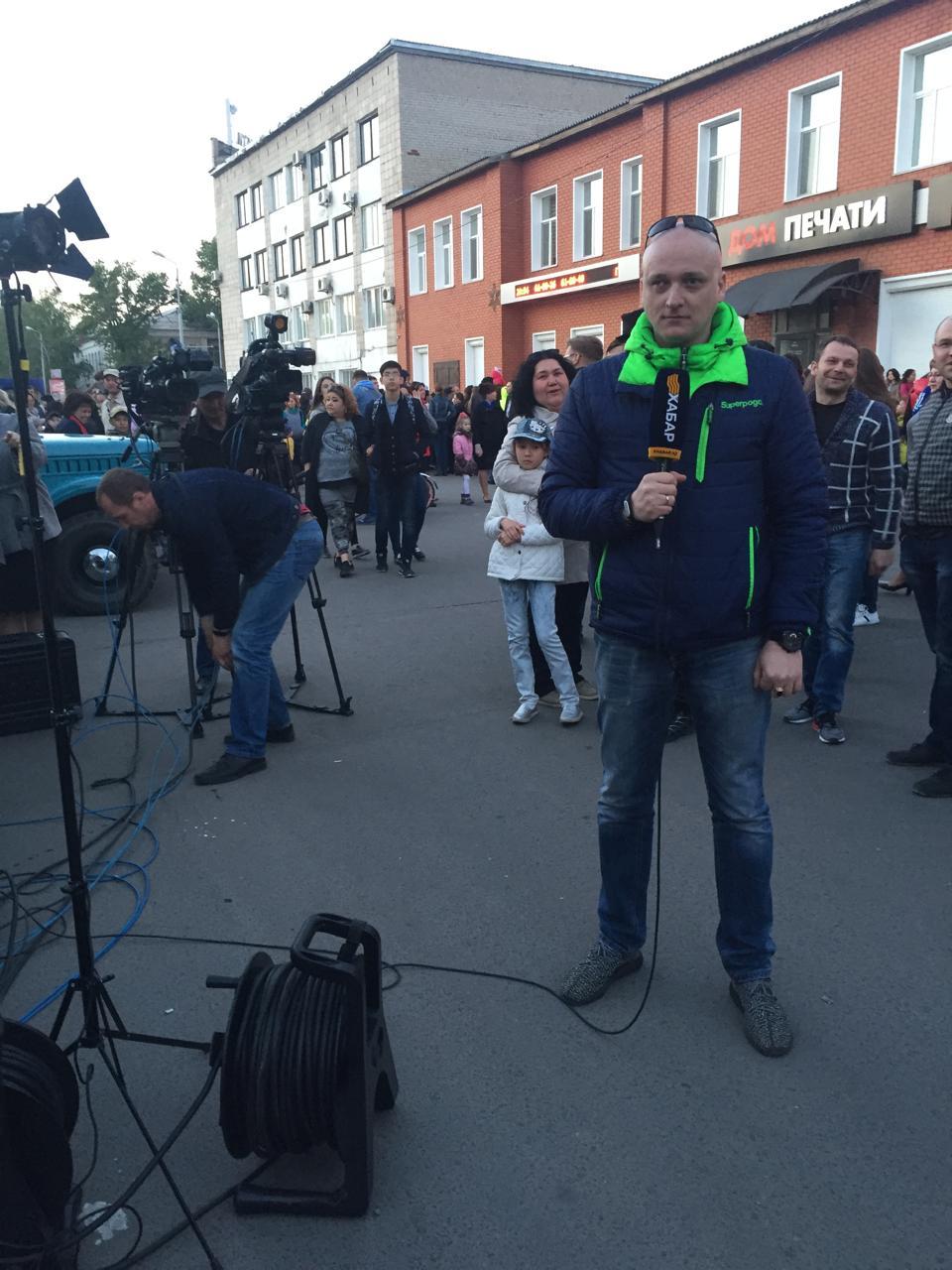
After college, I pursued higher education. It was a good career prospect. At that time, our communication guys went to the Novosibirsk SIBGUTI communication department, which provided an internationally recognized diploma. I collected my documents, sent them, and waited for the first session to begin. My documents were lost, and I called Novosibirsk when the session was already underway. I decided not to bother. After college, I took a gap year. The next year, I enrolled in higher education in my city, chose programming, and studied part-time. I started my education while working at “Kazakhtelecom” and graduated as an engineer on television.
The tower was with me; I passed it almost every day. The lost documents weren’t in vain. The tower drew me in; I greeted it for three years, and now I walk past it every shift. I worked at “KatElco” for 10 years.
From Telecom Technician to PTS Engineer: Navigating a Career in Broadcasting
— How did your career develop?
We had four engineers and one chief engineer in the team. Initially, they told me there wouldn’t be much growth in this organization. At some point in my work at “KatElco,” honestly, I don’t remember the exact year, there was a merger with “Kazteleradio.” But there were reasons why I left.
The organization gave me many connections over ten years. I met colleagues from “Khabar,” “Channel One”, and almost every major TV channel in Kazakhstan. Journalists and cameramen from various channels came to us to transmit and receive signals. The job of a technician is grounded, but in television, I met creative people with their own visions.
One day, I received a notification on social media about a colleague’s birthday from “Khabar.” I called to congratulate him, and he replied, “I needed you yesterday.” Mobile broadcasting stations equipped with dishes, PTS, had arrived at the channel. I had worked with them before, transmitting signals through them.
Here, I want to make a small digression. As a child, I loved watching satellites in the sky. Later, when I started working, I realized it was direct work with space and those satellites. My childhood dream practically came true because I worked through satellites and became the “main space guy,” as they said in some movie.
I became the “main space guy,“ as they said in some movie
I was hired as a sound engineer, but the company couldn’t find a PTS engineer to manage the station for a long time. Sayan Sarbasov offered me the engineer position.
After that, new engineers from different regions were gathered and trained, showing the technical equipment of the vehicle. For example, there’s the KazSat-2 satellite, which we need to align with regardless of location. Today, I can orient myself by the sun and time anywhere, point to the sky, and say where the satellite is. I have an app on my phone to track the satellite, but I can manage without it.
After training, I returned to the region and began working as a PTS engineer at “Khabar.” An interesting life stage, the vehicle became my small office. I had to start it, we had autonomous power, generators, then raise the dish and set up the video path so that in Astana, from Pavlodar, there would be a picture and sound.
At “Khabar,” I had to work in various regions. First, it was live news broadcasts. Second, events of different scales: from small factory events to working with the head of state.
Sometimes we involved regions to strengthen the team in Astana. There was a period when we held a teleconference for the president every six months. It was a semi-annual and annual report to the government.
For two weeks, we stayed on sites, working out the path. The locations were varied: a pier on the Caspian Sea, even during a severe storm; mines at depths where production explosions sometimes occurred. My most unusual site for all these teleconferences was a 5-hectare greenhouse with roses.
There was also the president’s inauguration. The presidential motorcade drove through many streets and sites in Astana. Twelve mobile stations were involved in the process, and I was responsible for the eleventh one, located right in front of the palace where the inauguration took place. There was continuous broadcasting of the event. At that moment, I realized it was the highest level – working with the head of state.
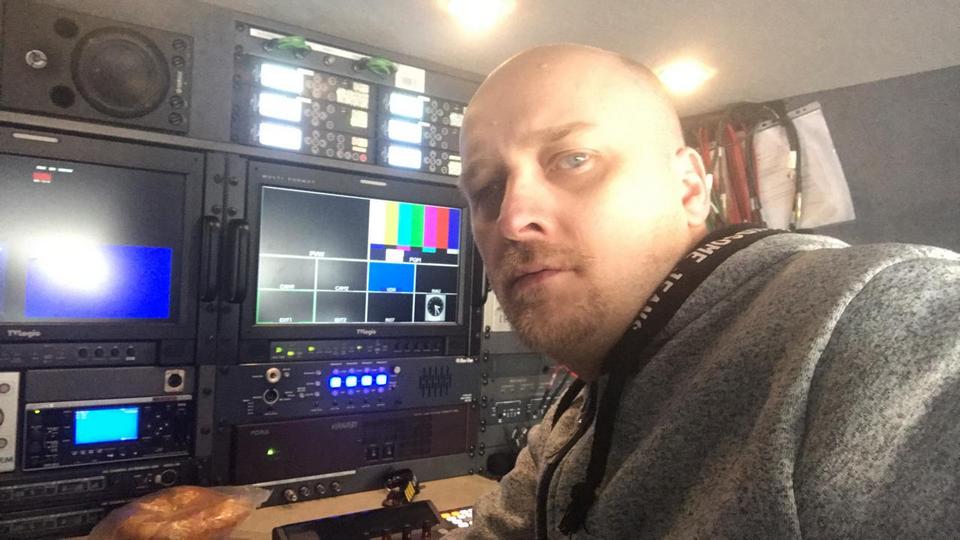
It was a pleasure to know my parents were proud, understanding where their son was working today. There were moments when my mother said her son was working with the president.
Overall, life for everyone unfolds differently. Each person’s life is unique, filled with both joyful moments and challenges.
My life had happy moments, like childhood, and tough periods, like my injury. There was also a learning stage when I learned to communicate with people according to my position and acquired new skills.
Despite all the difficulties, I believe everything happened for a reason. Even the fact that my documents got lost in Novosibirsk had its purpose. Today, my childhood dream came true: I work directly with satellites and have earned a reputation among technical specialists over the years.
— When did you join “Khabar”?
It was August 2014. When I started working on television, particularly at “Khabar,” it felt like not just colleague relationships but family, friendly, and team relationships.
Here, I’m not just an engineer. When you work on major projects like teleconferences or the president’s motorcade broadcast, it’s team work. You understand that you are one of the important links in this chain.
Even if technical problems arose, you could confidently ask colleagues for help, and no one would reproach you for it. The stakes were high. Colleagues always supported and helped each other, which was very pleasant. You could always ask for help or receive assistance at any moment.
To this day, this feeling remains. Despite having supervisors, I can confidently approach them without fear, like asking a friend. I’m always grateful to Sayan and Madiyar. This cohesion makes us stronger.
In August this year, it will be 10 years since I started working at “Khabar,” and I will always remember this stage with warmth. Thanks to “Khabar,” I had many business trips to different cities, regions, and events. Life became brighter, more fun, and interesting, with many acquaintances and friends through work.
Finding Love and Overcoming Challenges: A Personal Journey
— How did your family life develop? Where did you meet your wife?
For me, it was difficult because, due to the accident, I considered myself unwanted, thinking no one would choose me.
Before I got married, I was friends with a girl who opened my eyes to the truth that people are judged by their minds, not appearances. She showed me that I wasn’t just surviving and existing, but that I was a unique person who had achieved a lot.
I met my wife a bit later. An interesting moment, we met in a network company. Due to my schedule of day/night/48, I had a side job. I underwent training in sales and also learned material unrelated to network products or sales techniques, but philosophy, including family philosophy. We met at one of these sessions. One day, I saw a young girl entering the office on a sunny day, a blonde. That’s where we met. Our relationship developed quickly; it happens when two people find each other. When we were together, we always wanted to share our emotions.
I think this happens in any new couple. But despite the challenges over 15 years of marriage, we still try to be together and share our emotions.
My wife started working in photography, gaining a new circle of acquaintances. Photography became my hobby.
— What do you like to photograph?
Yesterday, I photographed my friend, a surgeon, performing surgery. I can shoot celebrations, nature. Give me an hour or two, and I’ll just walk around; it recharges me like a battery. I can also give my friends a family photo session as a gift. I recently photographed my friend’s family, and it brought joy.
I photograph both factories and ships, making it both a hobby and a job. My camera is always with me wherever I go. My father also had a camera, an amateur “Smena 8,” and we have a family archive. When my injury happened, I refused to appear in photos. When I got my hands on a camera, I realized that photography is very valuable because it’s history.
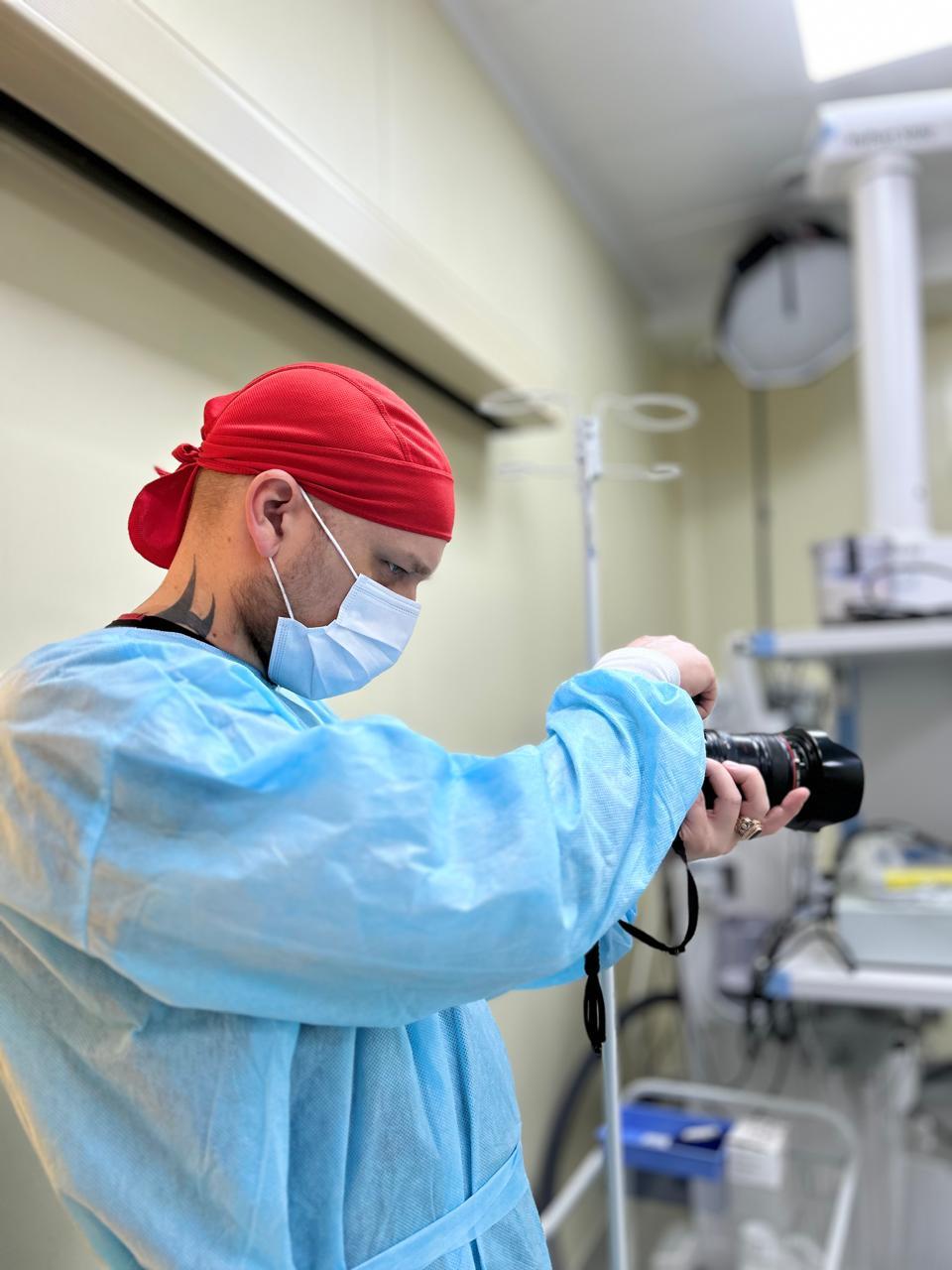
Today you are five, in ten years you’ll be fifteen, in twenty years you’ll be twenty-five, and in forty years you’ll be forty-five. These moments in your life will never return, but photography allows you to relive them. I probably realized, due to my childhood circumstances, that photography is very cool, and I want to pursue and develop in it.
My hobby turned into a second job. Nowadays, I do photography, and it brings me satisfaction. If stressful moments arise, I need to shoot, be in that quiet space, and find something beautiful around me. It brings balance and returns me to a resourceful state.
— How many children do you have?
I have one child, and we waited eight years for him. We went through a very difficult ordeal, my wife suggested we divorce, find a normal woman who could give birth. I told her, “You know, I chose you, and I want to walk this path with you, whatever it may be.”
First, it was a sign of respect for my choice; if you choose your partner, you must stay with them to the end, not switch partners. For me, marriage is one-time and for life; whatever difficulties arise, they must be resolved together. Even during our long struggle for our son, we tackled it together.
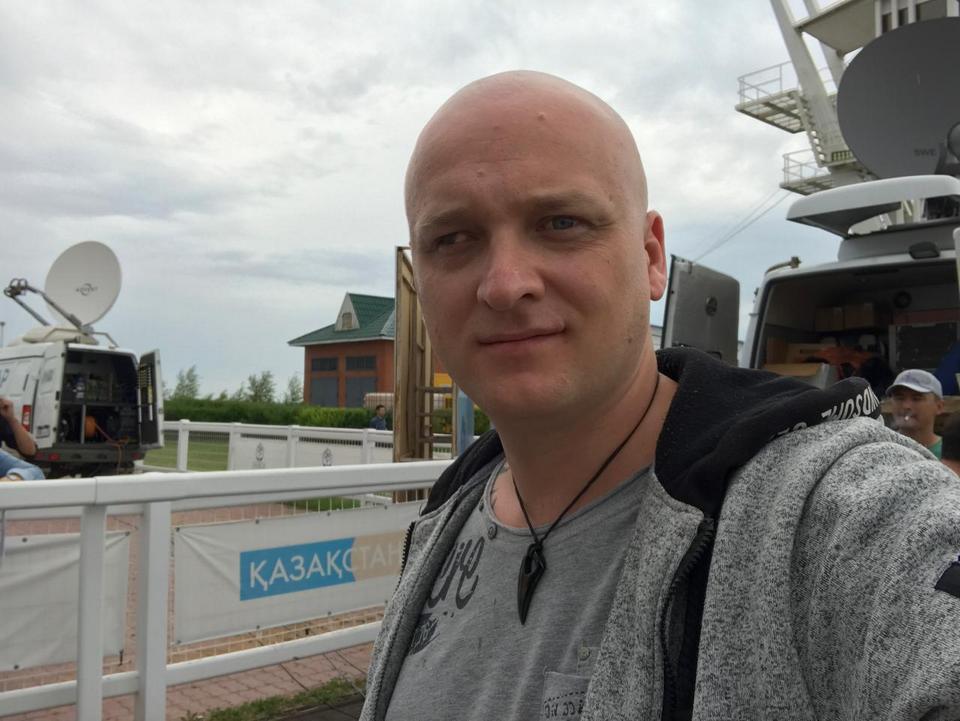
I was always honest with my wife. Today, my son is five years old, and I understand that I might not have had this boy who brings joy every day. You wake up and see his smile, laughter, eyes.
Everything in life happened as it should. Each stage shaped me into the person I am today.
